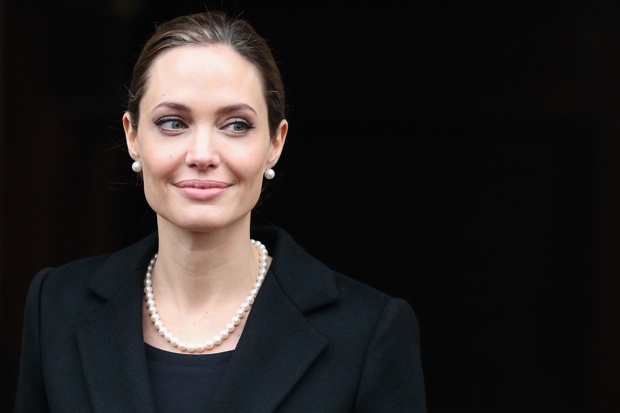So mysterious, the Conservative party. In every poll, our five most admired institutions are the NHS, the BBC, the Royal Mail, the armed forces and the monarchy. The Conservative party wants to destroy four of them. Conservative? The only traditional aspects of British life to be preserved are private education, executive over-pay, the rights of both the security services and the press to wiretap innocent citizens, and the delegation of foreign policy to Washington. Some Tories even want to send high-speed trains zipping through their own rural constituencies. Ministers muttering into their beards about how everything must be changed and changed utterly more closely resemble the Trotskyites of my youth than Conservatives. Shouldn’t the party change its name? The word ‘Maoist’ somewhere in there would be helpful.
Last winter, lovers of the arts scored a rare victory by getting the government to recognise the foolishness of their proposed English baccalaureate. But during the arguments I tired of hearing that drama belonged in any core curriculum because it would give the young the chance to acquire the theatre-going habit. What a horrible idea! Who wants to acquire a habit? I go to the theatre roughly 30 times a year, and nearly everything I see is good. We suffer only a couple of turkeys, and that’s because my wife and I choose by certain rules: stick to what’s new, stick to what’s primarily created by writers — avoid West End poster-products and displays of director-driven auteurism. We go for work which relates to life as lived outside the theatre, rather than to transient fashions within. In that way, we have secured a playgoing history of perpetual discovery and refreshment — one I would wish available to every young person. It has been the opposite of a habit. If ever I thought ‘I’m doing this because it’s something I do’, I’d stop.
A disappointing film of Midnight’s Children has given film critics a chance to assert again that only second-rate books make first-rate movies. Are they all anaesthetised to repeat this untruth weekly? If your mind is open, start by considering The Magnificent Ambersons. Buy Booth Tarkington’s book, and treat yourself to an unfamiliar masterpiece. Then watch Orson Welles’s version. What a coincidence. The film is great because the novel is great. Then consider David Lean’s version of Great Expectations. Find Alfred Hitchcock’s film of Rebecca and, next, if you really want to raise the bar, Kozintsev’s version of Hamlet. People generally think Henry James’s Washington Square a pretty good book. Well, The Heiress is its equal as a film, and I’d prefer to watch Merle Oberon in Wuthering Heights than read it again. Finally, in George Stevens’s hands, Theodor Dreiser’s American Tragedy becomes what a leading director told me is the greatest film ever made — A Place in the Sun, with Elizabeth Taylor and Montgomery Clift. Anyone recant?
Times are as bad for liberal journalism as they are for liberal everything else. The Guardian inveighs against racism, ageism and sexism, but still thinks it’s chic to be vile when talking about actresses. Why are they so threatened by intelligent young women just because they act? Angelina Jolie could only finally win the Guardian’s approval when she cut both her breasts off. Her work to relieve suffering among the poor had been reported with relentless mockery. This is the paper which called Vanessa Redgrave an angel of death when she took up the Romani cause. In a profile, Hadley Freeman stooped to praise an actress — Ellen Page, as it happened — but only by observing that her articulacy set her apart from her peers. I don’t get to meet that many young actresses, but I do know that an evening with Felicity Jones is going to be 50 times more intellectually rewarding than an evening with Liz Jones. The paper’s embedded anti-actress prejudices are narcissism masquerading as opinion.
Honour, though, to Simon Hoggart for telling the truth about William Rees-Mogg dishonestly fiddling perks in public office. In the 1980s, Rees-Mogg’s ubiquity was refutation of the theory that Thatcherism had anything to do with meritocracy. Rather the opposite. Out-smarted by Rupert Murdoch as editor of the Times, Mogg was then promoted by Margaret Thatcher to be a disastrous chair of the Arts Council at the very moment when someone intelligent was needed. After failing there, he was moved on to be vice-chair of the BBC. When Howard Brenton and I satirised him as Eliot Fruit-Norton in Pravda, Mogg attended the play. At the interval he reacted to the gales of laughter by saying to his companion, ‘The audience like me. They laugh at everything I say.’ There are still parts of the British ruling class which can’t detect the difference between ‘laughing with’ and ‘laughing at’, but pray God they are passing. No thanks to Rees-Mogg — or Thatcher.






Comments